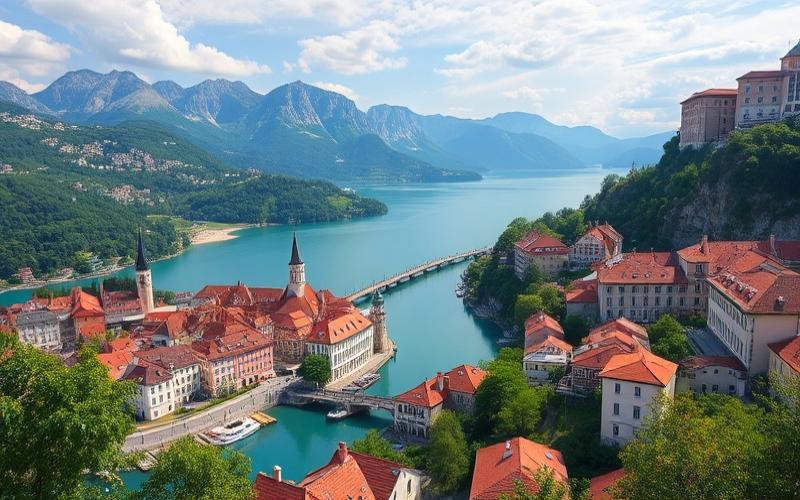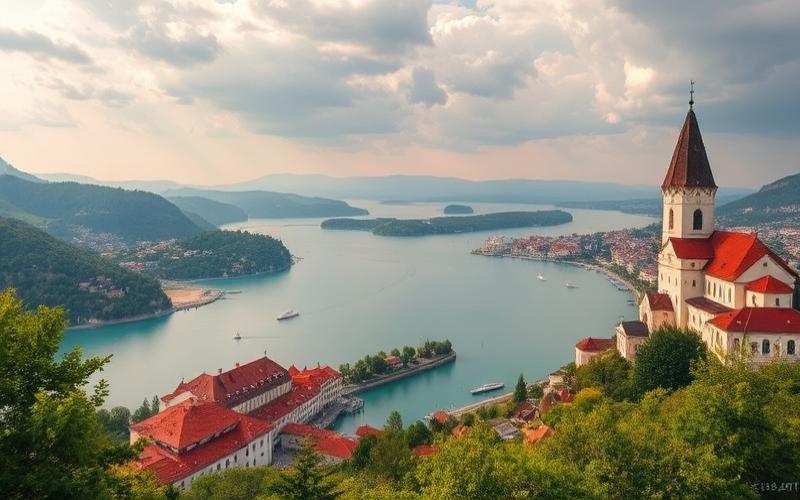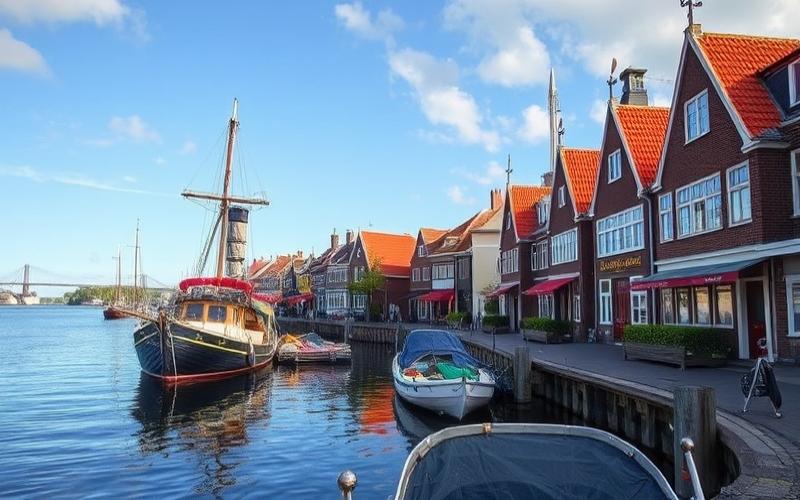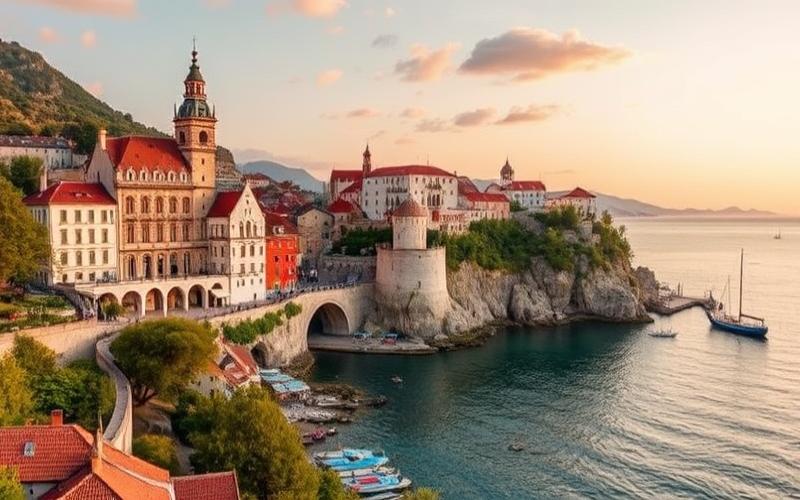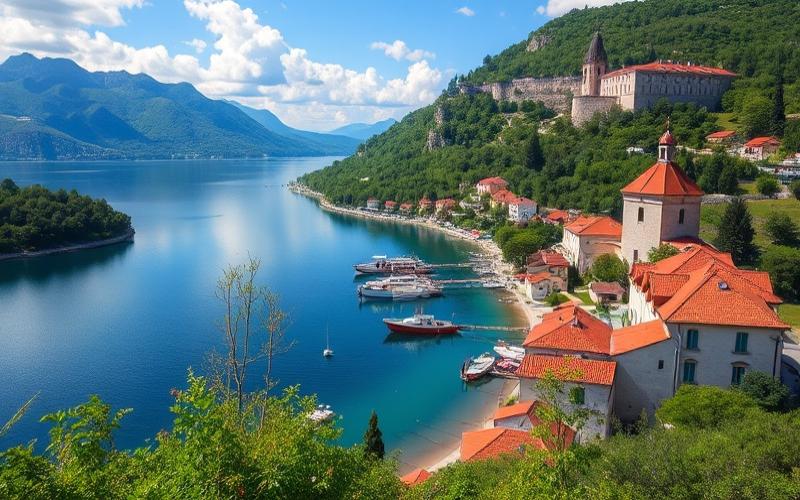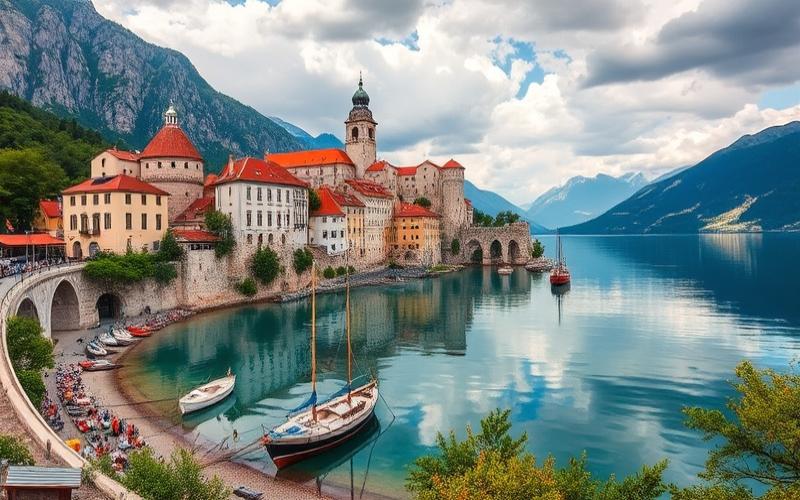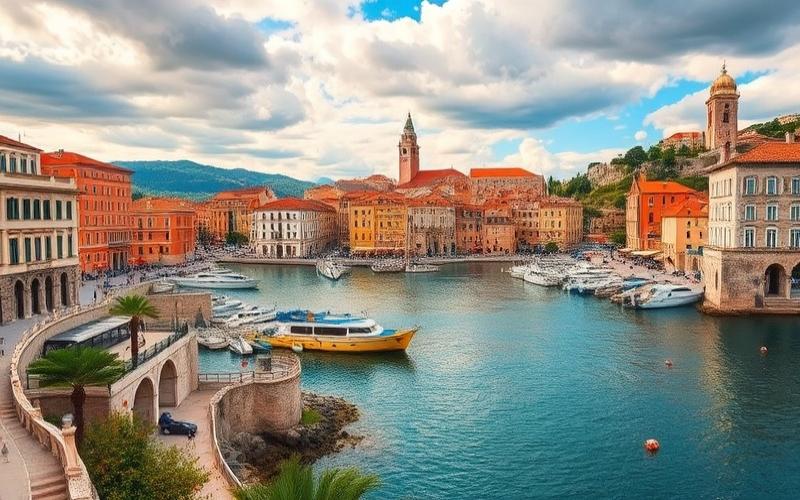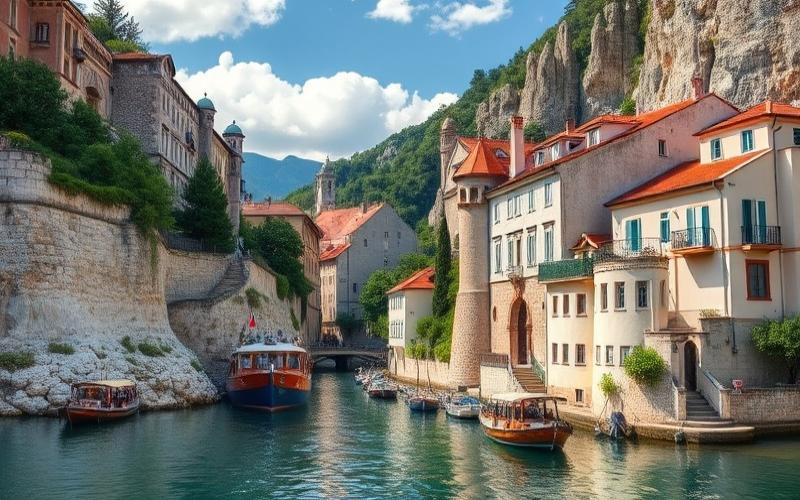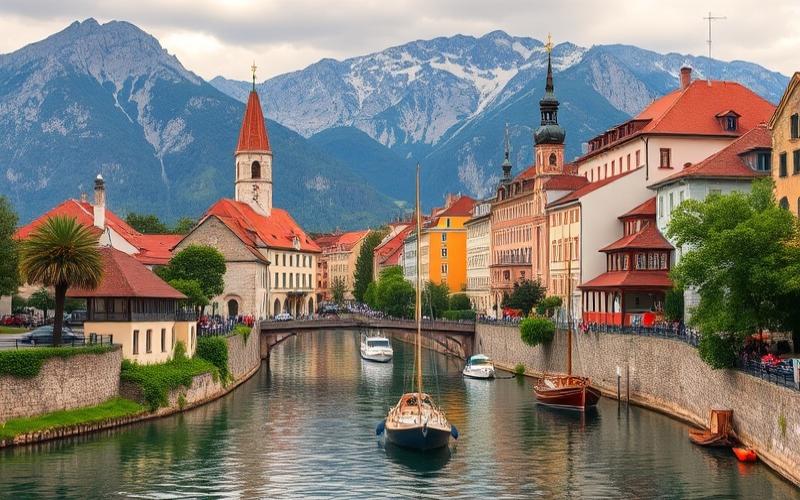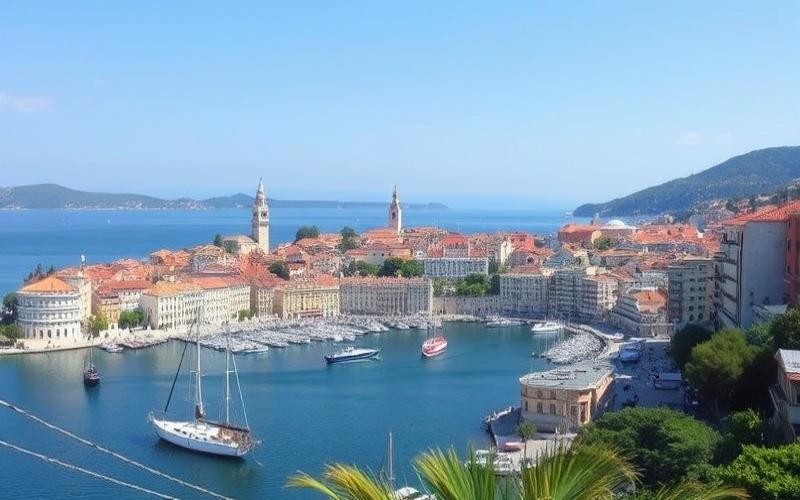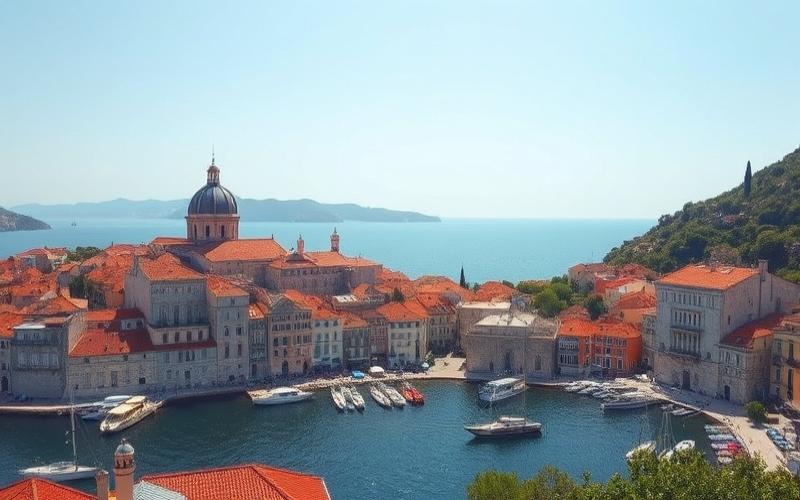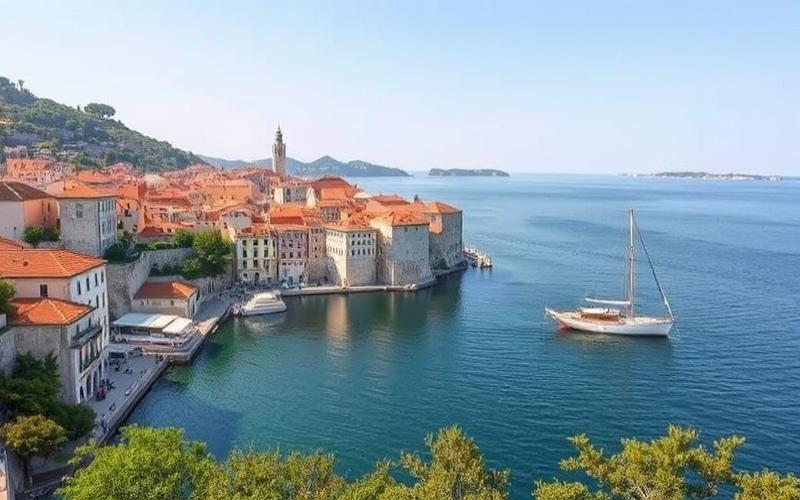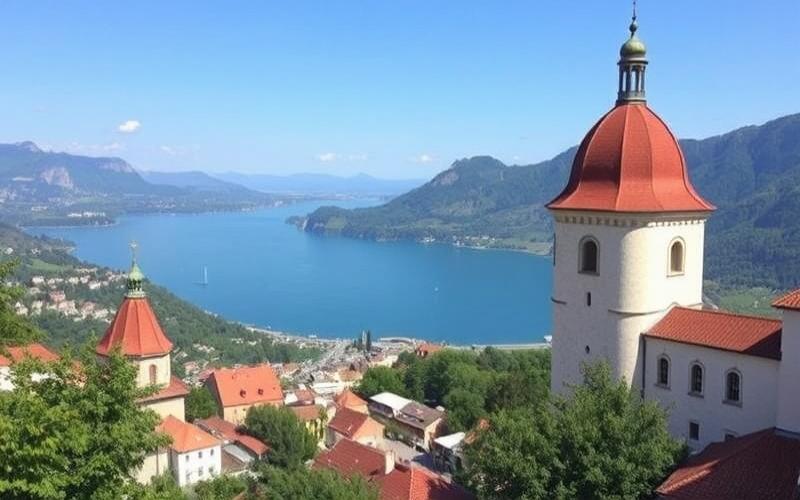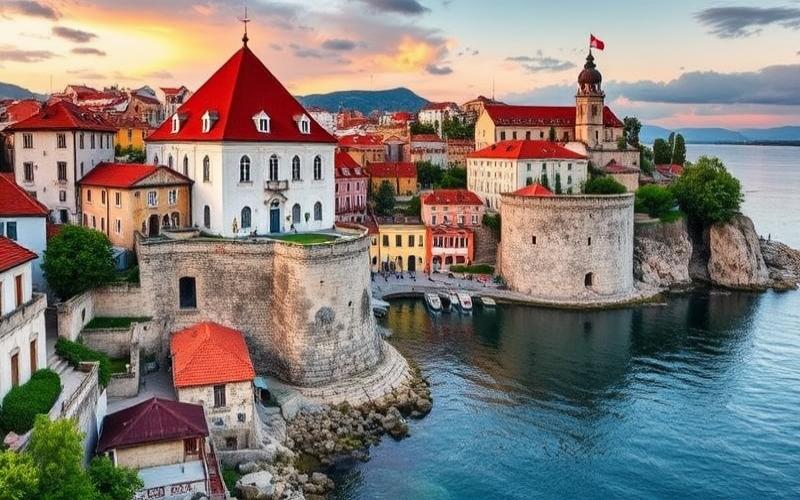
 Published on and written by Cyril Jarnias
Published on and written by Cyril Jarnias
Buying Real Estate in Croatia
Purchasing real estate in Croatia attracts more and more foreign investors each year, drawn by its picturesque landscapes and rich cultural heritage. However, although it’s a promising market, many common mistakes can occur when acquiring property in this country.
From the complexity of local laws to the specifics of real estate transactions, thorough preparation and deep understanding of the process are essential to avoid costly pitfalls.
Good to Know:
Taking a closer look at these common mistakes could not only save you time but also spare you financial disappointments, ensuring a confident investment on the Adriatic coast.
Understanding the Croatian Real Estate Market
Analysis of Recent Croatian Real Estate Market Trends
- Continuous Price Increase: The real estate price index reached a record in Q1 2025, illustrating sustained growth. This rise is mainly observed in coastal and tourist areas, where demand remains strong.
- Key Economic Factors:
- Tourism: A crucial driver of demand, it particularly boosts seasonal rentals and villa purchases along the coast.
- Economic Growth: The strengthening national economy in 2025 attracts both foreign and domestic investors, increasing pressure on the residential and commercial markets.
- Inflation & Interest Rates: Rising material costs due to inflation are pushing prices upward. Meanwhile, increasing interest rates make credit less accessible, which could slow some purchases but hasn’t significantly reduced demand so far.
- Taxation: A planned tax increase in 2025 could burden existing owners and might influence market dynamics in the medium term by limiting some foreign or speculative investments.
Most Sought-After Regions for Buying
| Region | Attractiveness | Average Price/m² | Specifics |
|---|---|---|---|
| Dalmatia | Very High (Split, Dubrovnik) | >€3,000 | Highly sought-after sea-view villas |
| Istria | High (Pula, Rovinj) | ≈€3,000–3,500 | Proximity to Italy/Slovenia |
| Zagreb | High (dynamic capital) | ≈€2,000–2,300 | Good urban rental profitability |
| Slavonia | Low/Moderate | ≈€1,500 | Affordable opportunities but less liquid |
Key Takeaway
The Croatian market remains promising thanks to tourism but requires increased vigilance on the legal aspect. Attractiveness varies greatly between the coast/islands—often reserved for high budgets—and the interior, offering more affordable but less liquid opportunities.
Good to Know:
The Croatian real estate market is attracting more and more investors, particularly due to its sustained growth and the tourist appeal of regions like Dalmatia and Istria. Prices tend to rise, especially in coastal areas, influenced by increased demand and an expanding economy. Zagreb remains essential for investments due to its capital status, but coastal regions offer high profitability for tourist rentals.
Buyers must be aware of legal specifics, such as regulations on agricultural properties and the need to verify the validity of property titles, to avoid common pitfalls like ownership disputes. In terms of prices, apartments in Zagreb cost on average €2,000 to €2,500 per square meter, while on the coast, it can easily exceed €3,000 for upscale properties.
Foreign investors often make the mistake of not sufficiently informing themselves about negotiation procedures and underestimating additional purchase costs, such as the real estate transfer tax.
Pitfalls to Avoid When Buying in Croatia
Main Pitfalls to Avoid When Buying Real Estate in Croatia:
- Failure to Verify Property Documents and Titles
Croatian land registries can be outdated or incomplete, posing major risks. A thorough legal check is essential to detect potential encumbrances, third-party rights, or disputes over the property. Legal expertise ensures the property is not burdened and its legal status is clear. - Translation Errors in Real Estate Transactions
Poorly translated or ambiguous contracts can lead to misunderstandings and compromise the validity of the purchase process. It’s crucial to use a professional translator specialized in real estate law to avoid any misinterpretation that could cause disputes. - Lack of Attention to Local Regulations (Protected Areas, Agricultural Land)
Some properties are located in areas with strict regulations (agricultural zones, protected natural areas). Lack of proper permits or non-compliance with urban plans can lead to legal obligations to demolish certain structures or refusal of intended land use. - Ignorance of Hidden Fees:
- Notary fees
- Administrative fees
- Real estate agency commissions
- Legal procedure costs
- Imperative Need to Hire an Experienced Local Lawyer
Proceeding without a competent professional significantly increases legal risk. A local lawyer knows Croatian regulatory specifics, analyzes documents, and secures all administrative and contractual steps.
| Common Mistake | Potential Consequence |
|---|---|
| Insufficient Title Verification | Ownership Disputes |
| Poor Document Translation | Legal Ambiguity / Invalid Contracts |
| Unawareness of Local Regulations | Restricted Use / Administrative Penalties |
| Underestimation of Additional Fees | Unexpected Overcost |
| Absence of Local Lawyer | Undetected Legal Issues |
Risks Related to the Speculative Real Estate Market:
- The Croatian market can be marked by strong speculation, especially in tourist areas.
- Incorrect property valuation (overestimation relative to real price) exposes the buyer to:
- Financial loss upon quick resale.
- Rental yield below expectations.
- Difficulty realizing capital gains if the market turns.
Key Takeaway:
Systematically engage a recognized professional for each step (specialized lawyer + translator + certified agent), meticulously verify all official documents, consider the specific regulatory context based on the property’s location, anticipate all additional fees as well as the potential volatility of the Croatian real estate market.
Good to Know:
When buying real estate in Croatia, it’s essential to meticulously verify property documents and titles to avoid ownership disputes. Ensure document translations are accurate to prevent misunderstandings. It’s also crucial to understand local regulations, especially regarding protected or agricultural areas, which can limit property use. Don’t overlook hidden fees, such as notary fees or agency costs, which can increase the final purchase price. Consulting an experienced local lawyer is strongly recommended to navigate the complex Croatian legal system and avoid any ambiguity. Finally, be wary of the speculative real estate market in Croatia; incorrect property valuation can lead to significant losses, so a professional appraisal before buying is advised.
Frequently Made Administrative Errors
Common Administrative Errors When Buying Real Estate in Croatia
- Unawareness of Local Legal Requirements
Many foreign buyers are unaware of Croatia-specific laws regarding real estate acquisition. Depending on nationality, there may be restrictions or special conditions that can make purchase impossible or complex if not respected.
Example Impact: An ineligible buyer risks transaction cancellation, with loss of incurred fees and deposit.
- Non-Compliance with Administrative Procedures for Foreigners
Foreign nationals often need prior authorization from the Ministry of Justice or must follow additional procedures. Non-compliance with these formalities can result in purchase nullity.
Advice: Always verify purchase eligibility before signing a preliminary agreement.
- Lack of Property Title Verification
Croatian land registries can be incomplete or outdated. Lack of thorough verification exposes buyers to properties burdened with debts, third-party rights, or illegal constructions.
Example Impact: Discovery after purchase of hidden easements or an unreleased mortgage, making the property unsellable or a source of disputes.
- Errors in Sales Contracts Due to Language Barrier
Misunderstanding legal terms or contractual subtleties can lead to signing disadvantageous or even fraudulent documents.
Advice: Always have all contracts reviewed by a bilingual lawyer specialized in Croatian real estate law.
- Forgetting to Pay Specific Taxes and Fees
Taxes like the real estate transaction tax (generally 3%) or notary fees can be overlooked. Non-payment results in penalties and administrative blocks.
Example Impact: Inability to register the property in the land registry, delaying full enjoyment of the property.
- Complications Due to Lack of Qualified Intermediary
Purchasing without the help of an agent or lawyer exposes buyers to risks of fraud, procedural errors, or signing with unlicensed agencies.
Advice: Always verify the accreditation of professionals used and prefer established agencies.
| Common Error | Potential Impact | Advice to Avoid |
|---|---|---|
| Unawareness of Local Laws | Transaction Canceled, Fees Lost | Check Purchase Conditions by Country |
| Non-Compliance with Procedures for Foreigners | Purchase Nullity, Loss of Rights | Obtain Pre-Purchase Legal Advice |
| Insufficient Title Verification | Disputes, Hidden Debts, Unexpected Easements | Thorough Check by Specialized Lawyer |
| Misunderstood Contracts (Language Barrier) | Disadvantageous Clauses, Fraud Risks | Legal Translation and Bilingual Assistance |
| Forgetting Local Taxes/Fees | Penalties, Registration Blockage | Anticipate and Budget All Costs |
| Absence of Qualified Intermediary | Fraud, Administrative Errors | Engage Accredited and Recognized Professionals |
Key Points to Remember:
- Always hire a licensed lawyer and real estate agent.
- Verify all property titles and urban planning compliance.
- Require official translation of all contractual documents.
- Inform yourself in detail about mandatory taxes and fees.
- Never sign without full understanding of legal implications.
Lack of vigilance on these points can lead to loss of significant sums, lengthy legal disputes, or even total loss of the acquired property.
Good to Know:
Common administrative errors when buying real estate in Croatia often include unawareness of legal requirements, such as foreigners not following specific procedures to become owners, often related to the language barrier. It’s crucial to meticulously verify property titles to avoid buying a property with disputes or debts. Sales contracts can contain errors if documents aren’t correctly translated, leading to costly misunderstandings. Additionally, forgetting to pay Croatian taxes and fees or failing to use a qualified intermediary can radically complicate the acquisition. For example, a foreign buyer saw their purchase delayed by several months for skipping the required local notarial authentication step. To avoid these errors, it’s advisable to work with a specialized local lawyer, have all legal documents translated by a professional, and inform yourself about taxes to be paid before finalizing the purchase.
Tips to Secure Your Investment
Essential Tips to Secure a Real Estate Investment in Croatia:
- Consult Local Experts:
- Hire a specialized lawyer to analyze documents, verify transaction legality, and anticipate risks.
- Work with a licensed real estate agent recognized locally. Verify their license and reputation to avoid illegal or unreliable agencies.
- Local professionals know the subtleties of the Croatian market, procedures, and can guide you through administrative complexity.
- Understand and Respect the Croatian Legal Framework:
- EU citizens can freely purchase most real estate properties in Croatia.
- For non-EU nationals, purchase is subject to reciprocity conditions and requires authorization from the Ministry of Foreign Affairs.
- The process includes signing the contract before a notary, registration in the cadastre, and payment of the purchase tax.
- Verify the Property’s History:
- Check property rights via the land registry (Zemljišne knjige).
- Ensure the property has no debts, mortgages, or ongoing disputes. This prevents future legal or financial problems.
- Request the up-to-date cadastral extract and have it analyzed by your lawyer.
- Commission a Professional Appraisal:
- Hire an independent expert to estimate the property’s real value and avoid overpaying.
- An expert assessment also helps detect potential hidden defects or structural issues.
- Plan for Long-Term Yield:
- Analyze the property’s rental potential, regional tourist traffic, and local market stability.
- Diversify your investment (e.g., purchase a seaside property for seasonal rental or a city apartment for long-term lease).
- Research local taxation (property tax exemption, secondary residence tax, capital gains regime).
Examples and Anecdotes:
| Situation | Future Owner’s Action | Result Obtained |
|---|---|---|
| A French couple hired a Croatian lawyer and local agent to buy a house in Split | Property title verification, price negotiation, payment security | Purchase without disputes, on a solid legal basis, and easy resale three years later |
| A Belgian investor neglected expert appraisal and land registry study | Purchased an apartment with an undeclared mortgage debt | Lengthy legal procedure to regularize the situation and unexpected financial overcost |
| A German family prioritized seasonal coastal rental after studying rental yield | Worked with a local manager for rental and maintenance | Profitability over 6% annually, with property appreciation in five years |
Key Takeaways:
- Surround yourself with local professionals to secure each purchase step.
- Scrupulously respect Croatian laws to avoid any administrative blockage.
- Verify the property’s history and legal status before any signing.
- Have the property appraised to know its real value.
- Consider resale and rental yield to optimize long-term profitability.
Securing a real estate investment in Croatia primarily requires caution, meticulous verification, and guidance from local experts.
Good to Know:
To secure your real estate investment in Croatia, it’s crucial to collaborate with local experts such as lawyers and real estate agents, who can guide you through the country’s complex laws and regulations. Ensure these experts have a good reputation and knowledge of the local market. For example, a lawyer specialized in real estate recently helped a foreign investor identify and resolve a hidden debt attached to a seaside property, thus avoiding future complications. Meticulously verify the property’s history to ensure all property rights are clear and unambiguous, and hire a professional to assess the property’s fair value to avoid overpaying. Anticipate long-term profitability questions, for instance, by analyzing seasonal rental potential in tourist regions. Finally, familiarize yourself with the legal frameworks governing property purchases by foreigners to avoid potential obstacles or delays in your purchase.
Disclaimer: The information provided on this website is for informational purposes only and does not constitute financial, legal, or professional advice. We encourage you to consult qualified experts before making any investment, real estate, or expatriation decisions. Although we strive to maintain up-to-date and accurate information, we do not guarantee the completeness, accuracy, or timeliness of the proposed content. As investment and expatriation involve risks, we disclaim any liability for potential losses or damages arising from the use of this site. Your use of this site confirms your acceptance of these terms and your understanding of the associated risks.



